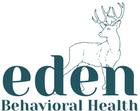ADHD In Children: Symptoms, Types, Parenting, Resources
ADHD Characteristics, Understanding Symptoms, Parent Help, and What To Know
What You'll Learn
ADHD Facts, What Is ADHD, Living With ADHD, Our Services, How To Help, Our ADHD Checklist, Parenting ADHD, ADHD In School & More
ADHD Facts
Prevalence: Attention-Deficit/Hyperactivity Disorder (ADHD) is one of the most common neurodevelopmental disorders in children. According to the CDC, approximately 6 million children in the U.S. (ages 3–17) have been diagnosed with ADHD at some point.
Key Traits: Inattention, hyperactivity, and impulsivity often define ADHD. However, its presentation can vary from child to child.
Neurobiological Roots: Research shows that ADHD has a strong neurological basis, often involving differences in brain structure and function, as well as genetic factors.
Actionable Tip
If you suspect your child may have ADHD, start by tracking behaviors (e.g., attention span, restlessness, impulsive actions) over a few weeks. This record can be shared with a healthcare professional for a more accurate assessment.
What Is ADHD?
ADHD is a neurodevelopmental disorder that affects how the brain grows and develops. It influences your child’s ability to pay attention, regulate emotions, and control impulses. While often first identified in school-aged children, signs can appear as early as preschool years.
Actionable Tip
Speak openly with your child's mental health professional if you notice consistent challenges with attention or activity levels in your child. Early identification leads to more effective interventions.
Common Symptoms in Children
Inattention: Difficulty staying focused, making careless mistakes, often losing personal items.
Hyperactivity: Excessive fidgeting, restlessness, constant motion, difficulty engaging quietly.
Impulsivity: Interrupting conversations, difficulty taking turns, acting without thinking of consequences.
Actionable Tip
Keep a simple daily routine. Children with ADHD often thrive with consistent schedules, visual reminders (like checklists or charts), and clear expectations.
Types Of ADHD
Predominantly Inattentive Presentation: Marked by forgetfulness, disorganization, and difficulty sustaining focus.
Predominantly Hyperactive-Impulsive Presentation: Characterized by restlessness, fidgeting, impulsive decisions, and frequent interruptions.
Combined Presentation: Exhibits symptoms of both inattention and hyperactivity/impulsivity.
Actionable Tip
If your child’s primary challenge is inattentiveness, focus on tools for improving organization (color-coded folders, planners). If hyperactivity or impulsivity is the main issue, incorporate movement breaks or physical routines into the day.
Living With ADHD
Daily Routines: Consistency in bedtime, mealtime, and homework sessions can greatly help.
Social Skills: Children with ADHD may struggle to follow social rules (e.g., waiting their turn). Role-playing and guided practice can be beneficial.
Self-Esteem: ADHD can impact a child’s confidence. Positive reinforcement and celebrating small victories help counter feelings of frustration.
Actionable Tip
Use checklists for daily tasks like “morning routine” or “homework tasks.” This visual structure reduces confusion and encourages independence.
Our Services and How To Help
Evaluation: Mental health professionals can conduct comprehensive assessments that provide insight into challenges.
Therapy: Behavioral therapy, Cognitive Behavioral Therapy (CBT), and parent training programs are helpful options.
Educational Support: 504 plans or Individualized Education Programs (IEPs) in school can provide accommodations.
Actionable Tip
Seek a team approach. Collaboration among parents, teachers, therapists, and pediatricians ensures more personalized and effective support strategies.
ADHD Checklist
Use a simple checklist to track common areas of difficulty:
Attention Span (difficulty completing tasks, daydreaming)
Organization (misplacing items, messy workspace)
Impulsivity (blurting out answers, interrupting)
Hyperactivity (restlessness, inability to stay seated)
Time Management (struggling to meet deadlines, procrastination)
Actionable Tip
Review your checklist weekly or monthly. Look for patterns of improvement or setbacks. Share the findings with a professional during your child’s assessment or therapy sessions.
Parenting ADHD
Positive Reinforcement: Offer specific praise (e.g., “Great job finishing your homework before dinner!”) to reinforce desired behavior.
Consistent Discipline: Use clear, calm, and immediate consequences for negative behavior. Explain the reasons behind rules and consequences.
Collaborative Problem-Solving: Engage your child in creating solutions for challenging behaviors (e.g., “What can we do to help you remember your homework every day?”).
Actionable Tip
Consider joining a local or online support group for parents of children with ADHD. Sharing experiences and strategies can reduce stress and inspire new ideas.
ADHD Child Therapy and Counseling
Behavior Therapy: Helps children build coping skills, manage impulses, and practice attention strategies.
Parent Training: Involves parents focusing on communication techniques, problem-solving, and implementing strategies.
Play Therapy: Particularly helpful for younger children, allowing them to express feelings and learn social skills through structured play.
Actionable Tip
Ask potential therapists about their experience and approach to ADHD. A good match can significantly influence how quickly and effectively your child learns new strategies.
ADHD In School
Classroom Accommodations: Preferential seating, extended test times, or breaks for movement can help.
Teacher Collaboration: Regular communication between parents and teachers ensures consistent strategies both at home and at school.
Homework Strategies: Break homework into smaller tasks, use timers, and create a distraction-free workspace.
Actionable Tip
Request regular feedback from your child’s teacher. Weekly email check-ins or a communication notebook can catch potential issues early and celebrate improvements.
Resources
Professionals: Pediatricians and Child Therapists can offer evaluations, diagnosis, strategies, and medication management.
Local Support Groups: Look for community groups or chapters of national organizations (like CHADD—Children and Adults with Attention-Deficit/Hyperactivity Disorder).
Online Tools: Websites such as Understood.org and ADDitude Magazine provide free articles, webinars, and checklists tailored to ADHD challenges.
Actionable Tip
Compile a go-to folder (digital or physical) with important documents, resource links, local support contacts, and your child’s IEP or 504 plan. Keeping everything centralized makes it easy to find help when you need it.
